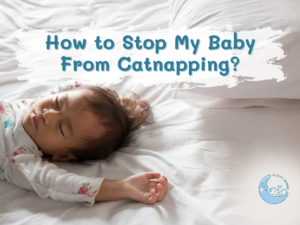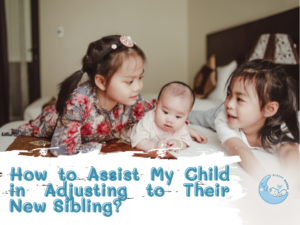Enquire Now with FREE 15 Mins Call
Tips to Sleep Train Your Baby Successfully

Many parents notice that their babies’ sleep patterns changed all of a sudden. Some of these changes may not be good ones. The good news is, there is definitely something you can do about it, and it’s called sleep training.
Whilst it sounds rather intimidating, sleep training can actually help your baby in the long term. If you’ve never heard of sleep training, this is your chance to know more about it.
What is Sleep Training?
Sleep training is a series of actions that parents can perform on a daily basis to help their babies fall asleep independently. More commonly, it involves encouraging them to develop self-soothing techniques that will also help them fall back asleep when they wake up.
In essence, sleep training is meant to help your baby adapt to the changes in sleep patterns that they will go through. As babies mature, their sleep pattern develops to become more complex, eventually becoming the sleep pattern they bring into adulthood.
When Does My Child Need Sleep Training?
There are several indications that your child can begin sleep training. If your little one:
- Wakes up several times during the night, often crying and needing your attention. They usually require you to soothe them by feeding, rocking, patting, holding them or other actions.
- Takes a very long time to fall back asleep when they’ve woken up in the middle of the night.
- Has difficulty going to bed at their usual bedtime and stays asleep only for shorter periods than previously possible.
- Depends heavily on sleep props to fall asleep. A sleep prop is an external action that they find soothing and calming, forexample, rocking, patting and nursing. Without sleep props, your baby can’t fall asleep.
- Often cranky or hyperactive during the day due to a lack of quality sleep.
When Can My Baby Start Sleep Training?
Most parents will notice a significant change in their little one’s sleep pattern when they’re around 4-6 months old. This is when their sleep patterns undergo changes, which you can help them to adapt to by adopting some sleep training methods.
However, before 4 months old, you can already start teaching your baby some good sleep habits so that they do not develop the dependency on sleep props to fall asleep.
Nonetheless, sleep training is not a must. Many babies are able to adapt to their changing sleep patterns on their own. You should only intervene if you notice that they’re unable to adapt and self-soothe, thereby facing sleep disruptions or sleep deprivation.
How Do I Sleep Train My Baby Successfully?

Before you ask “Is there a baby sleep trainer near me?” You’re encouraged to explore some simple sleep training methods. Here’s how to ensure you get the best results.
1. Follow a Fixed Schedule
The first thing you need to establish is good sleep hygiene. The way to achieve this is of course by establishing a consistent sleep schedule.
Try to put your baby to sleep at the same time every night and wake up at the same time every morning. This will help their internal clock, known as their circadian rhythm, to develop better.
2. Establish a Bedtime Routine
There are certain actions you can develop and practice with your baby to settle them down for the night. These bedtime routines will establish in their subconscious that it is time to sleep. Therefore, their bodies will start to produce sleep hormones that are essential for them to begin the sleep phases.
Examples of these routines include taking a warm bath, changing into comfy pajamas, reading bedtime stories, tucking your baby into bed, singing them a lullaby and more.
3. Don’t Overstimulate Your Baby Before Bedtime
Try and keep any interactions and vigorous activities with your baby to a minimum after sunset. This means no running around, screaming, tickling, extra loud laughter, vigorous sports or the like.
Your baby needs to be calm and be mentally prepared for bed. This includes minimizing their exposure to gadgets as gadgets tend to give off a blue light wave. This wave is known to stimulate the brain and make it more difficult to drift into sleep.
4. Place Your Baby Down Anyway
To establish their circadian rhythm, you should prepare your baby for bed and lay them down even if they’re not sleepy. This action itself sends a mental signal that bedtime is here.
5. Take Your Time to Respond
When you hear your child awake and crying at night, take your time to respond to them. You don’t have to ignore them completely when you start. However, you can start delaying responses more and more each time so that they can begin to develop their own self-soothing methods.
Help Your Baby Sleep With Professional Advice
If you want to know how to sleep train your baby the right way, book a 20 minutes free discovery call and speak to me at Sleepy Bubba. I’m a professional baby sleep trainer in Singapore that will guide you to ensure you get the best results from your baby sleep consultation sessions and that it meets your baby’s specific needs.







